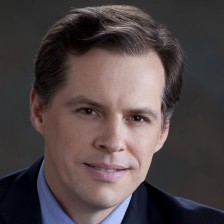(Excerpt from a previously published report on using social media to forecast the 2018 Brazilian Presidential Election, Analyzing the 2018 Brazilian Election Social Media Influence Index, July 2018)
“Establishment Politicians”
Ironically, though the general sentiment is anti-establishment, this election cycle is dominated by establishment candidates. Most of the principal candidates have been on the Brazilian political scene for years. In fact, many have already made a run (s) at the presidency in the past. The following list shows the candidates who have already run for president with the most recent IPESPE poll figures in parentheses.
- Lula da Silva (30%) – ran in 1989, 1994, 1998, 2002, and 2006, coming in second, second, second, first and first place respectively,
- Marina Silva (10%) – ran in 2010 and 2014, coming in third on both occasions,
- Ciro Gomes (7%) – ran in 1998 and 2002, coming in third and fourth place respectively, and
- Geraldo Alckmin (7%) – ran in 2006, coming in second place.
Summing the current poll figures for these “establishment” candidates shows just how dominant this category is. At 54%, this category of candidates appears to be the driving force in the election. Note as well that undecideds make up 30% in this poll which would tend to push the true level of polled intention of support higher for this category.
Now, establishment is in quotes for a reason. These candidates are standard-bearers for their parties and are for the most part household names due to their previous attempts at the presidency. This does not mean that they are necessarily mainstream politicians. Marina Silva, for instance, is running as the candidate for the Sustainability Party (REDE) which is not a traditional mainstream party. The main point here is simply that the majority of the principal candidates has already run for president and will likely be associated with business-as-usual politics which will not likely be an advantage in the current environment. This is true even in the case of Marina Silva, whose preferred policies mostly don’t fit mainstream politics.
An additional establishment candidate, who has not previously run for president, is Henrique Meirelles. He has been extremely visible in Brazilian politics and government since 2002 and has served among other posts as a congressman and central bank chief. He is polling at only 2% currently and is getting little traction. Given his high-profile positions especially at the central bank he too will likely be seen as part of the establishment even though he has not previously run for president.
Jair Bolsonaro
Ever since Brexit, outlier candidates and messages have tended to resonate much more than in the past across a large sample of countries. In Brazil’s case, the candidate who most readily attacks status quo politics and who can be most viewed as an outsider is Jair Bolsonaro. Though being a congressman since 1990, he had not fully entered the national political scene until recently. Additionally, his political views are outside those of the mainstream political parties, which have tended towards center-right to left since the military dictatorship ended in the 1980s. He is widely seen as being a right-wing conservative, though others claim he tends more towards populist nationalism.
Of all the principal candidates, he fits the outlier mold the best. His attitude can most readily be related to that of Trump in that he shows little respect for the existing political order and is not bashful about saying so. And, like Macron who started his own political party to better position himself as an outsider, Bolsonaro is not dependent on an existing political party’s network but has instead chosen to run under PSL’s banner. This party, though having been founded over 20 years ago, seemingly has only won two congressional elections and was not viewed as a significant national party before Bolsonaro joined. Bolsonaro appears to have essentially taken over its infrastructure for his presidential run.
Like Trump and Macron, two of the most successful anti-establishment candidates, Bolsonaro does not hide his desire to change the current system and is viewed as being independent of party politics. He is seen as having the best shot at actually implementing real change due to his outsider status. This of course has its risks as well in that his actions will be less predictable. Given the state of Brazil at present, with political, economic, and social upset, it seems many Brazilians are willing to take that risk.
He has gained significantly in the polls over the last year and currently stands at around 20%. Most polls have him in second place behind Lula. If Lula does not run, Bolsonaro’s average poll figures have him in first place.
Fernando Haddad
If Lula is unable to run, his party (PT) may nominate a back-up candidate. The most likely appears to be Haddad who was the mayor of Sao Paulo, Brazil’s largest city, from 2013 to 2017. He clearly does not have the personal charisma of Lula or instantly recognizable name, but he is a solid candidate and polls at 12% assuming support from Lula, which would put him in second place behind Bolsonaro.
He seems somewhat stuck in terms of a candidate as he is fully reliant on Lula’s approval. Then, assuming he gets the nod, he will most likely end up pulling the party line which means he will likely appear as the establishment’s candidate for the party that has won the last four presidential elections. In other words, there is little chance he can paint himself as an anti-establishment candidate or take considerable risks – without which it seems difficult for him to stand out, especially during such a tight timeframe and in an anti-establishment environment.
